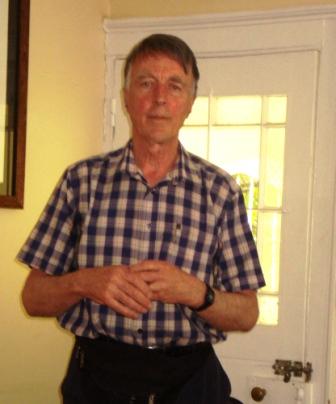
The Faculty of Humanities hosted Mr Martin Wilkinson last week to share his thoughts on “Why economic inequality matters”, a presentation based on his involvement with the book, The Spirit Level: Why Equality is Better for Everyone.
Written by Martin’s brother Richard Wilkinson and Kate Pickett, the book is an exploration of the mechanisms and explanations for the strong connections between inequality and social and physical problems or well-being.
“When you start looking at these interconnections you get into aspects of human nature and behaviour that are relevant to every aspect of equality and inequality,” Mr Martin Wilkinson explained. In his talk he presented compelling new evidence that shows how large economic inequalities within societies damages the health of citizens as well as the social fabric of that society and the quality of life for everyone. “It’s necessary to consider the role of money; how it relates to the health of individuals and society at large. We need to look at its arrangement, including who benefits from it and the mechanisms and correlations surrounding it,” he said.
With reference to numerous stratographs that appear in The Spirit Level, Mr Wilkinson illustrated the links between economics, well-being, life expectancy and quality of life. “The central question is whether or not life expectancy is greater in richer countries, and the answer to this is both yes and no,” he added.
According to the research, while life expectancy is between 40 and 60 years in poorer countries, it is estimated to be around 78 in richer ones; however, as explained by Mr Wilkinson, there is no correlation among rich countries with regard to wealth and life expectancy. “This means that it doesn’t matter whether you’re richer than other rich countries; as a wealthy country your life expectancy is higher than poor ones, but there’s no guaranteeing that getting richer will make you live longer,” he said. Also, the countries with the highest income gaps such as Portugal, the United Kingdom and America are almost twice as unequal as poorer ones.
The research also shows correlations between inequality and higher incidences of health and social problems. Countries which measured extremely high levels of inequality include America, Portugal, the United Kingdom, New Zealand and Australia, while Japan, Sweden, Norway and Finland were analysed as being more equal, and having less problems regarding health and social issues.
He highlighted some psychosocial risk factors associated with ill health as including low social status, weak social affiliations and stress in early life. “These things all contribute to creating an environment in which people feel anxious and unappreciated. This leads to numerous social problems including teen pregnancy, mental illness and imprisonment,” he said.
Mr Wilkinson is outraged by levels of economic inequality between countries and feels the gaps should be addressed. He said in South Africa where the genie coefficient is the highest in the world, there should be a focus on equality and not politics. “We all need to start cooperating and thinking of other people, cultivating levels of trust and acting in the public good. Almost everyone benefits from more equality,” he said.
Mr Wilkinson has lived most of his life in the UK. He trained as a scientist, with degrees in materials science and chemistry, and taught for about 20 years in schools and universities, mostly in England, but for two years in Papua New Guinea. An interest in new kinds of learning led him to a year of adult education in Denmark and voluntary building work in Zimbabwe.
As a Quaker himself, Mr Wilkinson worked for 15 years as manager of British Quakers' work in Africa, finding and supporting African peace workers in conflict areas. He has followed Richard Wilkinson's research in social and economic epidemiology for over 20 years, and has since the publication of The Spirit Level has been part of the Equality Trust, been presenting the material to audiences in the UK.
Story and photo by Sarah-Jane Bradfield
